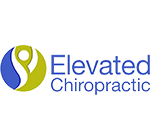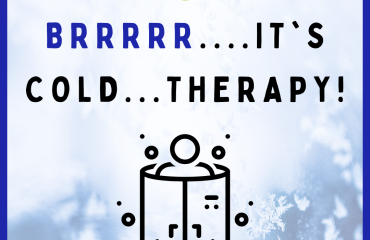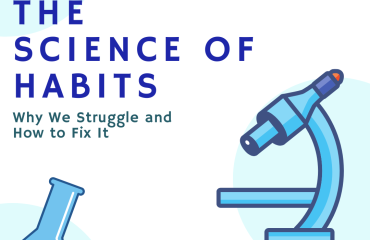We mean Rest and Recover!
So, you’ve just finished your post work-out stretch and are ready to head home. Time to head back to work for another 8 hours?! Don’t fall into the trap of forgetting one of the most important components to your physical fitness! Rest and Recover! Rest and recovery are an essential part of any workout routine. Your after-exercise recovery routine has a big impact on your fitness gains and sports performance. It allows you to train much more effectively. Unfortunately, most people don’t have an after-exercise recovery plan which can lead to injury.
Recovery after exercise is essential to muscle and tissue repair and strength building. This is even more critical after a heavy weight training session. A muscle needs anywhere from 24 to 48 hours to repair and rebuild. Working it again too soon simply leads to tissue breakdown instead of building.
Recommended by Experts
For weight training routines, this means that you should avoid working the same muscle groups two days in a row. There are as many methods of recovery as there are athletes. The following are some of the most commonly recommended by the experts.
- Replace Lost Fluids
- You lose a lot of fluid during exercise and ideally, you should be replacing it during exercise, but filling up after exercise is an easy way to boost your recovery. Water supports every metabolic function and nutrient transfer in the body. Having plenty of water will improve every bodily function. Adequate fluid replacement is even more important for endurance athletes who lose large amounts of water during hours of sweating.
- Eat Healthy Recovery Foods
- After depleting your energy stores with exercise, you need to refuel if you expect your body to recover, repair tissues, get stronger and be ready for the next challenge. This is even more important if you are performing endurance exercise day after day or trying to build muscle.
- Ideally, you should try to eat within 60 minutes of the end of your workout and make sure you include some high-quality protein and carbohydrates.
- After depleting your energy stores with exercise, you need to refuel if you expect your body to recover, repair tissues, get stronger and be ready for the next challenge. This is even more important if you are performing endurance exercise day after day or trying to build muscle.
- Rest and Relax
- Time is one of the best ways to recover (or heal) from just about any illness or injury and this also works after a hard workout. Your body has an amazing capacity to take care of itself if you allow it some time. Resting after a hard workout allows the repair and recovery process to happen at a natural pace. It’s not the only thing you can or should do to promote recovery, but sometimes doing nothing is the easiest thing to do.
- Stretch and Roll It Out
- After a tough workout, consider gentle stretching. This is a simple and fast way to help your muscles recover. You can also use a foam roller to break down the lactic acid that builds up in your muscles after a hard work out. Lactic acid is one of the main culprits for muscle soreness post-workout and the reason why you look like a Walking Dead extra after leg days.
- Perform Active Recovery
- Easy, gentle movement (such as a brisk walk or a bike ride) improves circulation, which helps promote nutrient and waste product transport throughout the body. In theory, this helps the muscles repair and refuel faster.
- Get a Massage
- Massage feels good and improves circulation while allowing you to fully relax. A good massage therapist will be able to focus on problematic areas and using his/her hands or tools to break-up tight and fibrotic tissue. This can help with overall recovery and performance.
- Take an Ice Bath
- Some athletes swear by ice baths, ice massage or contrast water therapy (alternating hot and cold showers) to recover faster, reduce muscle soreness and prevent injury. The theory behind this method is that by repeatedly constricting and dilating blood vessels helps remove (or flush out) waste products in the tissues. Limited research has found some benefits of contrast water therapy at reducing delayed onset muscle soreness (DOMS).
- How to use contrast water therapy: While taking your post-exercise shower, alternate 2 minutes of hot water with 30 seconds of cold water. Repeat four times with a minute of moderate temperatures between each hot-cold spray. If you happen to have a spa with hot and cold tubs available, you can take a plunge in each for the same time.
- Get More Sleep
- While you sleep, amazing things are taking place in your body. Optimal sleep is essential for anyone who exercises regularly. During sleep, your body produces Growth Hormone (GH) which is largely responsible for tissue growth and repair.
- Try Visualization Exercises
- Adding a mental practice to your workout routine can be a huge benefit for any athlete. Spending time practicing mental rehearsal or following a mindfulness meditation program can help process a calm, clear attitude and reduce anxiety and reactivity. Getting familiar with how your mind works, how thoughts can bounce around, and how you don’t need to attach to any of them, is a wonderful way for an athlete to recover both mentally and physically.
- Additionally, practicing positive self-talk can help change the ongoing dialogue in your head. Consider using both types of mental practice during your recovery days.
- Avoid Overtraining
- One simple way to recovery faster is by designing a smart workout routine in the first place. Excessive exercise, heavy training at every session or a lack of rest days will limit your fitness gains from exercise and undermine your recovery efforts.
- Listen to Your Body
- The most important thing you can do to recovery quickly is to listen to your body. If you are feeling tired, sore or notice decreased performance you may need more recovery time. If you are feeling strong the day after a hard workout, you don’t have to force yourself to go slow. If you pay attention, in most cases, your body will let you know what it needs, when it needs it. The problem for many of us is that we don’t listen to those warnings or we dismiss them with our own self-talk (“I can’t be tired, I didn’t run my best yesterday” or “No one else needs two rest days after that workout; they’ll think I’m a wimp if I go slow today.”)
For more information: https://www.verywellfit.com/ways-to-speed-recovery-after-exercise-3120085 and don’t hesitate to reach out to see how we can help you rest and recover!




